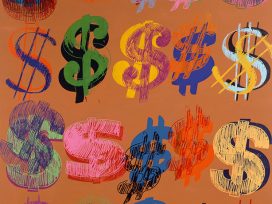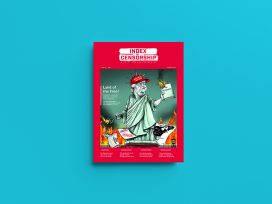There’s a growing dichotomy in American politics these days. The stock market goes up daily, but the unemployment rate has risen to a disturbing 10 per cent. Norway gives Obama the Nobel Peace Prize while in the States he’s attacked by rightwing TV as being a communist unworthy of the prize – and in Berlin last month, disgruntled Americans picketed carrying pictures of him wearing a Hitler moustache!
Given this atmosphere, the President is moving cautiously. He’s taking his time deciding about the course of the Pakistan/Afghanistan war. He’s staying out of discussions about the healthcare bill that is struggling through Congress. Nobody in his administration is even making much noise as the giant banks get richer while the general economy continues to worsen.
Most economic forecasts are worriesome: the unemployment rate is expected to go up for at least the next two years, and as unemployment insurance runs out, visions of Depression-era breadlines aren’t totally out of the question. “We’re not very good at creating new jobs”, said the conservative columnist David Brooks recently. It was the understatement of the week.
And everyone including the President is holding their breath.
In a recent interview in the New York Times (“Volcker Fails to Sell a Bank Strategy”, 21/10/09) Paul Volcker, the controversial 82 year-old past president of the Federal Reserve, suggests that the only sensible solution to the financial crisis may be the obvious one: to break up the major banks.
Volcker is a difficult, curmudgeonly figure. He’s wandered from academia to government posts to private banking, making enemies (and grudging admirers) on both Left and Right. In the late 1970s, as head of the enormously powerful Federal Reserve, he managed to cut inflation drastically by increasing lending rates. In 1987, however, he was eased out of power by Reagan, who felt that he was standing in the way of “free enterprise”.
What exactly does Volcker mean by breaking up the banks? A little history here: in 1933, in the first wave of the Depression, Congress passed something called the Glass-Steagall Act, which restricted banks to commercial banking and prohibited them from trading in stocks and bonds. As Volcker told the Times, “The banks are there to serve the public, and that is what they should concentrate on. These other activities create conflicts of interests and risks.”
Since the 1980s, however, banks put pressure on Congress to allow them to speculate with depositors’ money – and in 1999 they succeeded in repealing the major provisions of Glass-Steagall. Billions of dollars flowed into an already overheated stock market; it was like injecting a megadose of amphetamines. One wouldn’t be too far off in saying that the current worldwide financial crisis started right when the banks of the world saw how much money US banks were making, and decided to join them.
As head of a non-governmental economic panel that advises the President, Volcker has Obama’s ear. But his blunt manner clearly makes the administration uneasy: “We have discussed these issues with Paul Volcker extensively”, says an administration spokesman diplomatically.
According to Volcker, banks must return to being the quiet, boring, stable places that they used to be in the late 1930s and 40s: institutions doing mundane things like lending money at reasonable rates, supporting small business start-ups, and rewarding people for saving. Speculation should be left to the investment houses that can play with their own money and that of their risk-loving clients.
As Volcker remarks, “People say I’m old-fashioned and banks can no longer be separated from nonbank activity. But that argument brought us to where we are today.”
Will the administration ever go as far as Paul Volcker wants it to? Not likely. They would have to go against the trend of the last 40 years that allowed financial institutions to grow into conglomerates that centralized power and resisted control of any kind. Giant banking houses like Goldman Sachs and JPMorgan/Chase, which are even greedier than the money-machines of the late nineteenth century, would have to be dismantled, and the government would have to make sure that they do what they’re supposed to do – invest in businesses that provide jobs.
In these self-centred times, this could be seen – weirdly – as a kind of communism, or at least communalism, since it would require the financial sector to think of something beyond making money the fastest way possible.
Recently, the administration decided to restrict huge bonuses for executives in banking houses that receive government aid. It was a good move, but one that had more show than substance, since it left loopholes big enough to drive trucks through. And every weekend the administration sends representatives to appear on TV political talk-shows to complain about the banks’ unethical behaviour.
So even though Obama is starting to rattle his sabre, he’s not doing it very loudly.
In the meantime, the economy continues to split: the market goes up, people lose jobs, and everybody continues to hold their breath.






